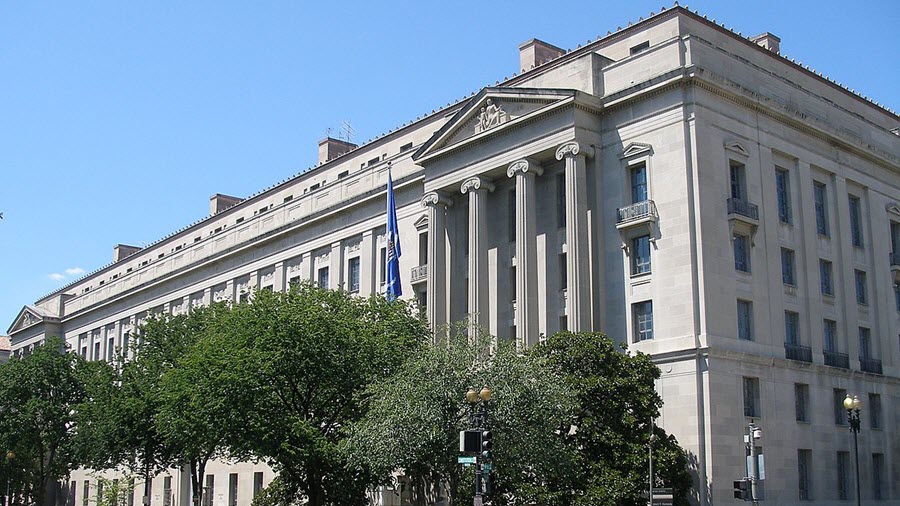DOJ Investigating Search, Social, Online Sales Giants

The smarter way to stay on top of broadcasting and cable industry. Sign up below
You are now subscribed
Your newsletter sign-up was successful
The Justice Department has made it official: It is investigating the business practices of Big Tech, which it signaled Tuesday (July 23) may be harming consumers.
President Donald Trump has signaled such a review could be in the offing.
Related: NCTA's Powell Cites D.C.'s Big Tech Whiplash
The Antitrust Division, headed by Makan Delrahim, said it is even now reviewing "whether and how market-leading online platforms have achieved market power and are engaging in practices that have reduced competition, stifled innovation, or otherwise harmed consumers."
The wide-ranging investigation will include search, social media and some online retail, which means Google, Facebook, Twitter, and Amazon are almost certainly in that conversation.
Related: Delrahim Says Edge Monopoly Not Necessarily Bad
The division will confer with the public and industry participants.
The smarter way to stay on top of broadcasting and cable industry. Sign up below
Delrahim has said that big is not necessarily bad, but Justice will look into whether or not that is the case with Big Tech.
“Without the discipline of meaningful market-based competition, digital platforms may act in ways that are not responsive to consumer demands,” said Delrahim. “The Department’s antitrust review will explore these important issues.”
One argument has been that Big Tech bought its way to dominance with hosts of small deals that individually did not raise antitrust red flags.
"The goal of the Department’s review is to assess the competitive conditions in the online marketplace in an objective and fair-minded manner and to ensure Americans have access to free markets in which companies compete on the merits to provide services that users want," DOJ said. "If violations of law are identified, the Department will proceed appropriately to seek redress."
Earlier this year, Delrahim signaled that the fact that edge provider giants like Facebook or Amazon or Google are huge, or even if they are virtual monopolies, they are not necessarily an antitrust issue unless they got that monopoly power through anticompetitive means or use that monopoly power anticompetitively.
As to their size, which in financial terms can be comparable to the GDP of small countries, "many of today’s large digital platforms have grown because they provide innovative and disruptive services that consumers seem to like and want to use," he said in delivering the keynote at the annual Silicon Flatirons tech policy conference at the University of Colorado Law School last February.
Contributing editor John Eggerton has been an editor and/or writer on media regulation, legislation and policy for over four decades, including covering the FCC, FTC, Congress, the major media trade associations, and the federal courts. In addition to Multichannel News and Broadcasting + Cable, his work has appeared in Radio World, TV Technology, TV Fax, This Week in Consumer Electronics, Variety and the Encyclopedia Britannica.

